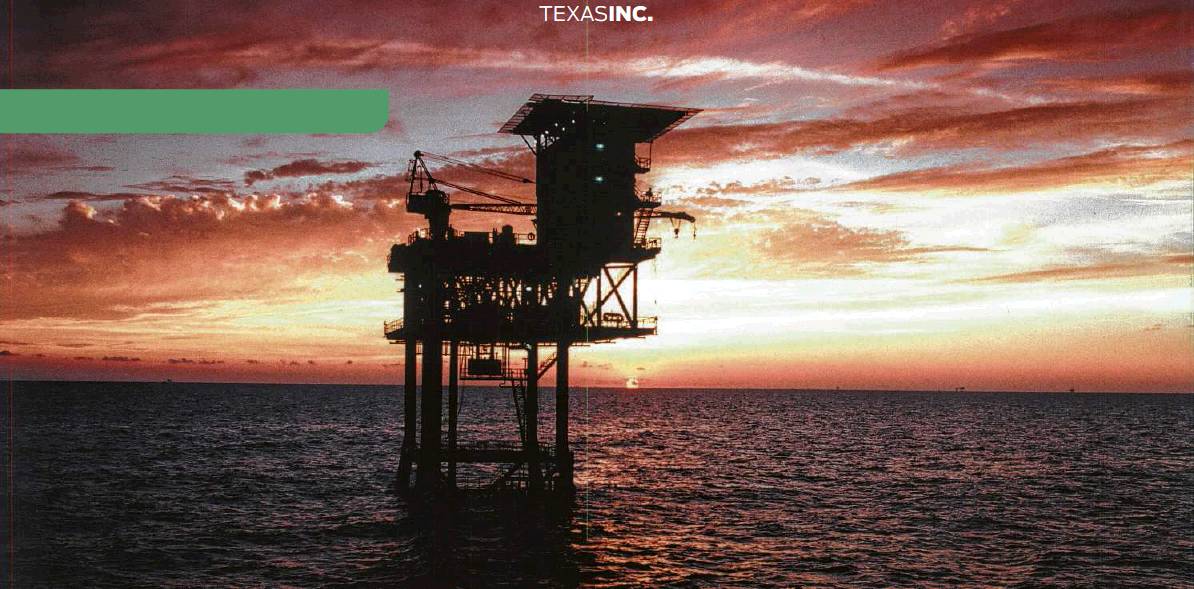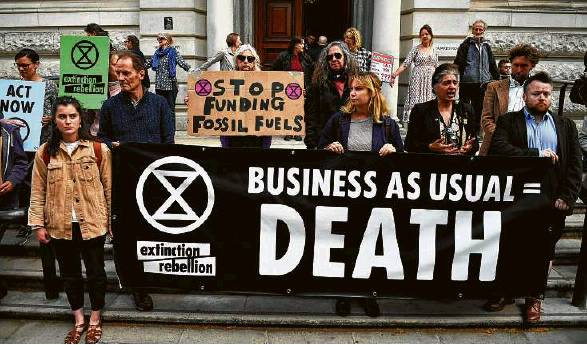TOMLINSON’S TAKE
Big Oil’s dirty secret: Climate regulation is necessary for industry’s longevity
CHRIS TOMLINSON Commentary
A ghastly specter is casting a shadow over the Offshore Technology Conference in Houston this week, and none of the ingenious new inventions and cost-saving innovations on exhibit will address a fundamental threat to the industry.
The dirty, big secret that only attracts brief mentions and sidelong glances at OTC is greenhouse gas regulation, and the world’s need to slash carbon dioxide emissions. As the climate changes and people around the world demand action, the oil industry generally — and offshore drilling specifically — face near extinction without adaptation.
Exploration vessels, floating collection platforms and underwater wells are expensive. For these projects to make money, they need to produce oil for 20 to 30 years. The unanswerable question for executives is how much will greenhouse gas regulation change over the next 30 years? How high will demand be for crude oil in 2045?
The world will undoubtedly still need oil for centuries. Existing wells run dry every day. Oil companies must replace 5 percent of production every year to maintain the current supply. Competition to supply that oil, though, will be fierce.
Shale wells are quick to drill and much cheaper than offshore wells, but production drops 70 percent after the first year. Shale wells can respond quickly to the market and regulation, which is an advantage in uncertain times.
Offshore oil cheerleaders, though, argue that short-lived wells cannot guarantee long-term supply. They say that oil companies are not discovering enough new oil to meet future demand. Sadly, for the future of the industry, that’s not true.
If government enforce the climate change mitigation policies they have promised, the global supply of oil will far exceed demand, according to a Boston Consulting Group analysis of data from publicly-traded energy companies and the International Energy Agency.
The big energy companies plan to produce 21 percent more oil in 2025, but the IEA expects demand to increase only 10 percent due to climate change regulations. Odds are, though, that the rules will be much stricter than the IEA projects.
If we burn all existing oil reserves, the planet will heat to an unbearable temperature.
Scientists have known since the 1860s that when the amount of carbon dioxide in the atmosphere goes up, more solar energy is trapped on earth, and the planet warms.
The last decade has been the warmest since humans began keeping records, with the average temperature 1.8 degrees Fahrenheit higher than in 1900. This spike higher correlates with the industrial revolution, and the concomitant rise in carbon dioxide emissions.
Researchers have calculated that to keep the earth’s temperature from rising to levels that cause widespread natural and economic disruption, humans can only afford to release another 986 gigatons of carbon over the next 50 years. If we exceed this carbon budget, the heat will turn farmland into deserts, kill hundreds of species and make some parts of North Africa and the Middle East uninhabitable.
The world’s 20 largest, publicly traded energy corporations, though, have promised their shareholders profits from selling 1,541 gigatons of carbon over the next 50 years, according to the London School of Economics. These same companies have pledged to spend billions of dollars more to find new oil reserves and to burn them too.
If these companies did nothing more than sell the $6 trillion in proven reserves they own today, the planet would suffer. But if these companies do not promise to sell those reserves, their stock value plummets.
Cambridge University economist Jean-François Mercure warned of this carbon bubble, where investors overestimate a corporation’s value by mistakenly believing that all of its fossil fuel assets will be sold. New limits on carbon dioxide emissions, or a sudden consumer shift to renewable energy sources, would cause this bubble to burst, he said, creating massive losses for shareholders.
The impetus for a sudden change in policy grows with every record-breaking downpour, every extreme wildfire and each succeeding year of record-high temperatures. Consumer tastes could change quickly, even without new regulations, with dozens of electric vehicles coming on the market over the next five years.
Oil company executives should consider these facts before making a final investment decision on a new offshore platform that will take five years to reach its station in the Gulf of Mexico. A $5 billion capital expenditure today could be a write-off in a decade.
The world will always need oil, but not nearly as much as we burn now. Deciding whether to build and deploy a new offshore platform has never been riskier.
Tomlinson writes commentary about business, economics and policy. chris.tomlinson@chron.com twitter.com/cltomlinson


